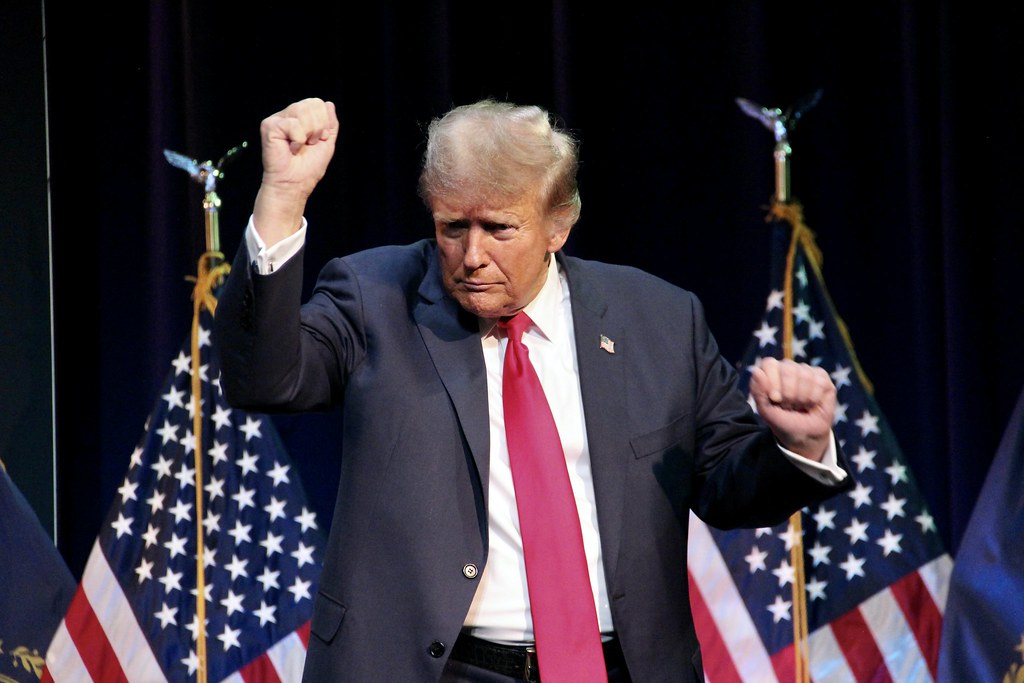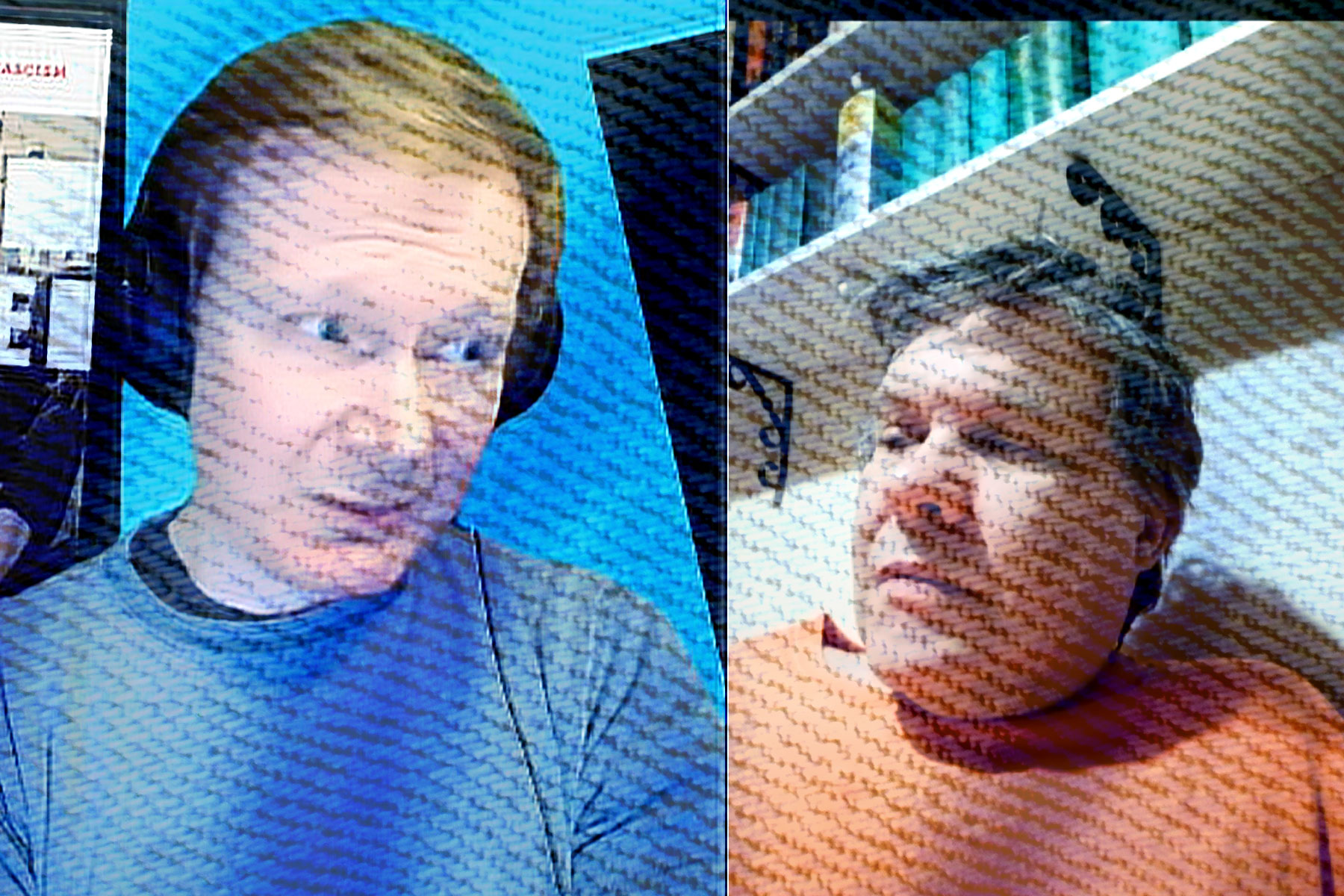His flurry of off-script, contradictory messages offers his fans whatever happens to resonate
As the US elections loom, nearly a decade of concern and analysis has brought us no closer to terms with Donald Trump and Trumpism. How do his supporters make sense of repeated claims that Joe Biden was simultaneously a doddering incompetent, the head of a vast “crime family”, and a master of the universe? How is it possible for someone who repeatedly proclaims admiration for world leaders who rule with an “iron fist” to convince others that he has taken a bullet for a democracy? We desperately want to find a method in the madness, but seem perpetually trapped between the Orwellian and the absurd.
Unravelling the puzzle of Trumpism – understanding its nature, power, and significance – requires that we think about the institutional structures and political environments that particularly suit it. There are discursive means that make it easy for all kinds of people to overlook his rambling and incoherence, to embrace the worldviews he promotes, and to become part of the MAGA movement.
Trump’s primary skill is to exploit how we communicate about public life. He built a public image of wealth, power, and business acumen that was carefully crafted by producers of reality TV. He offered political commentary to specific audiences attracted to talk radio and cable television. Schooled in the tabloid and celebrity culture of New York City, Trump was also an agile user of Twitter (X), with his attention-getting style and insult comic’s instincts for the jugular.
Trump has also thrived in a political environment shaped by disruptions and displays, aimed at feeding the media’s desire for controversy. The emphasis on framing and name-calling developed by focus-group maven Frank Luntz, and perfected by former Speaker of the House Newt Gingrich, has led politicians to traffic less in policy ideas or legislative acumen and more in playing the fame game, operating exclusively within an economy of media appearances whose currencies are mentions, clicks, and likes.
Because Trump is not a traditional politician, however, we are expected to excuse his digressions and norm violations, to take him seriously rather than literally. But how can one take Trump seriously, if the hyperbole and exaggeration, the insults and entertainment, deliberately obscure or preclude anything of true significance? Grappling with Trump Talk simply does not reward study as might the parables of Jesus, the aphorisms of Friedrich Nietzsche, or even the stream-of-consciousness work of Hunter S. Thompson. Much of the time, we simply give up, let Trump be Trump, and pass over the “banality of crazy” in silence.
A cocktail of performances
Without question, longstanding economic forces – stagnant wages, free trade agreements, deindustrialisation, globalisation – have left us with a persistent legitimation crisis. The resultant status anxiety and ethno-nationalist backlash have animated the passions of both the Tea Party and MAGA, threatening authoritarianism in the United States. However, in order to understand just how Trump delivers his populist appeals on such fertile ground, we need to understand his discourse.
Rather than a single, stable approach to speaking to audiences, Trump tends to use a blended cocktail of politically inflected discourses. Most of us know the features of his sales discourse – the hype and exaggerations, the familiarity and the con. We also know about his use of the indirect code used by stereotypical Mafia dons. Beyond these, many of Trump’s fans respond primarily to his off-script, improvised bits of comedy – both the observational and insult varieties. The serious discourse of combat (often melodramatic contests between friend and enemy) alternates with kayfabe, the mannered posing and bluster associated with professional wrestling. Mugging and dancing takes its place alongside ostensibly religious appeals that tap into the discourse of Christian nationalism. Present throughout is his narcissism, as he tells the story of his life as both victim and hero.
His audiences make sense of it all by responding in a “choose your own adventure” mode. In throwing everything against the wall, flooding the zone, Trumpian discourse does not simply overwhelm audiences with a flurry of inchoate and contradictory messages. There is advantage in ambiguity and utility in incoherence, for they allow people to focus on and choose whatever messages happen to resonate in the moment. The meaning of any Trump text is what the audience, its true authors, says it is. Contradictions disappear. Facts are irrelevant. Only vibes matter. In this fashion, Trump can escape confinement and representation. His supporters help him by saying things like “He didn’t say what you heard him say … You misinterpreted what you thought you heard … He didn’t mean it that way”.
If Trump wins the election, then whatever methods of self-defence we may adopt in the years to come, they have to include the realisation his multiple and decentered discourse is talk without a speaker. We fall into a trap whenever we seek to procure or impose a conventional interpretation of it, whenever we try to make sense of it according the standard rules of the game. There is no method in its madness. Madness is the method.
~ Leonard Williams
Top photo: Donald Trump at a rally in Rochester, New Hampshire, January 2024, by Liam Enea CC BY-SA 2.0








